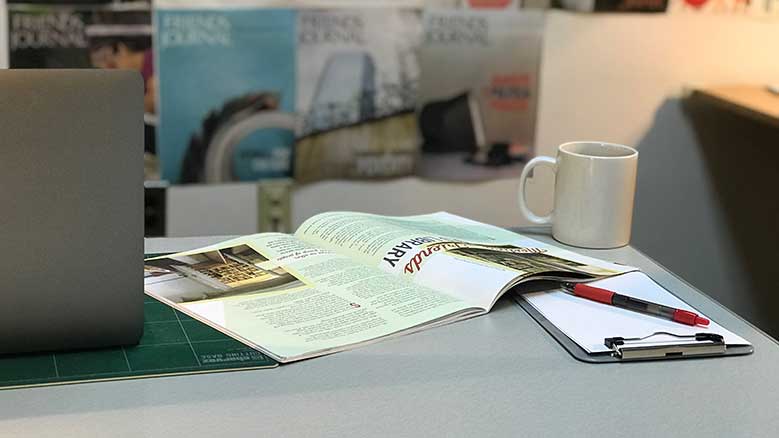
Fast Facts:
- Features run 1200-2500 words
- Updated due date 7/20/2018
- Questions? Email martink@friendsjournal.org or message on Facebook or Twitter.
If there’s one topic we can simultaneously talk about both too little and too much, it’s money. This is as true for Quaker meetings as it is for families. Our October issue opens the floor for discussion on “Meetings and Money.” There are many angles that Friends could discuss. We’ve brainstormed some ideas—but feel free to surprise us with your own take on the topic! Here’s the description for our the issue, “Meetings and Money”:
How do we spend money on ourselves? What is the role of money in our meetings? How do we decide whether to invest, provide services, or renovate? Due July 20, 2018.
Where does our money come from?
A lot of Quaker wealth is locked up in endowments started by “dead Quaker money”—wealth bequeathed by Quakers of centuries past.
Much of our American Quaker fortunes trace back to a large land grant given in payment for war debt. For the first century or so, this wealth was augmented by slave labor. Later Quaker enterprises were augmented by capital from these initial wealth sources.
In times past, there were well-known Quaker family businesses and wealthy Quaker industrialists. But American capitalism has changed: families rarely own medium- or large-scale businesses; they own stocks in firms run by a professional managers. If the ability to run businesses based on Quaker values is over, is shareholder activism our closest analogue?
Many Friends now work in service fields. Family life has also changed, and the (largely female) free labor of one-income households is no longer available to support Quaker endeavors as readily. How have all of these changes affected the finances of our denomination and the ability to live out our values in the workplace?
How do we support our members?
A personal anecdote: some years ago I unexpectedly lost my job. It was touch and go for awhile whether we’d be able to keep up with mortgage payments; losing our house was a real possibility. Members of a nearby non-Quaker church heard that there was a family in need and a few days later a stranger showed up on our back porch with a dozen bags of groceries and new winter coats for each of us. When my Friends meeting heard, I was told there was a committee that I could apply to that would consider whether it might help.
Where does the money go?
A activist Friend of mine use to point to the nice furnishings in our meetinghouse and chuckle about how many good things we could fund in the community if we sold some of it off. Has your meeting liquidated any of its property for community service?
When we do find ourselves with extra funds from a bequest or windfall, where do we spend it? How do we balance our needs (such as meetinghouse renovations, scholarships for Quaker students), and when and how do we give it to others in our community?
What can we let go of?
There are a lot of meetinghouses in more rural areas that are mostly empty these days, even on First Day. Could we ever decide we don’t need all of these spaces? Could we consolidate? Or could we go further and sell our properties and start meeting at a rented space like a firehall or library once a week?
Who gets the meetinghouse after a break-up?
In the last few years we’ve seen three major yearly meetings split apart, prompting a whole mess of financial disentanglement. What happens to the properties and summer camps and endowments when this happens? How fiercely are we willing to fight fellow Friends over money?
What conversations aren’t we having?
Where do we invest our corporate savings? Who decides how we spend money in our meetings?


Comments on Friendsjournal.org may be used in the Forum of the print magazine and may be edited for length and clarity.